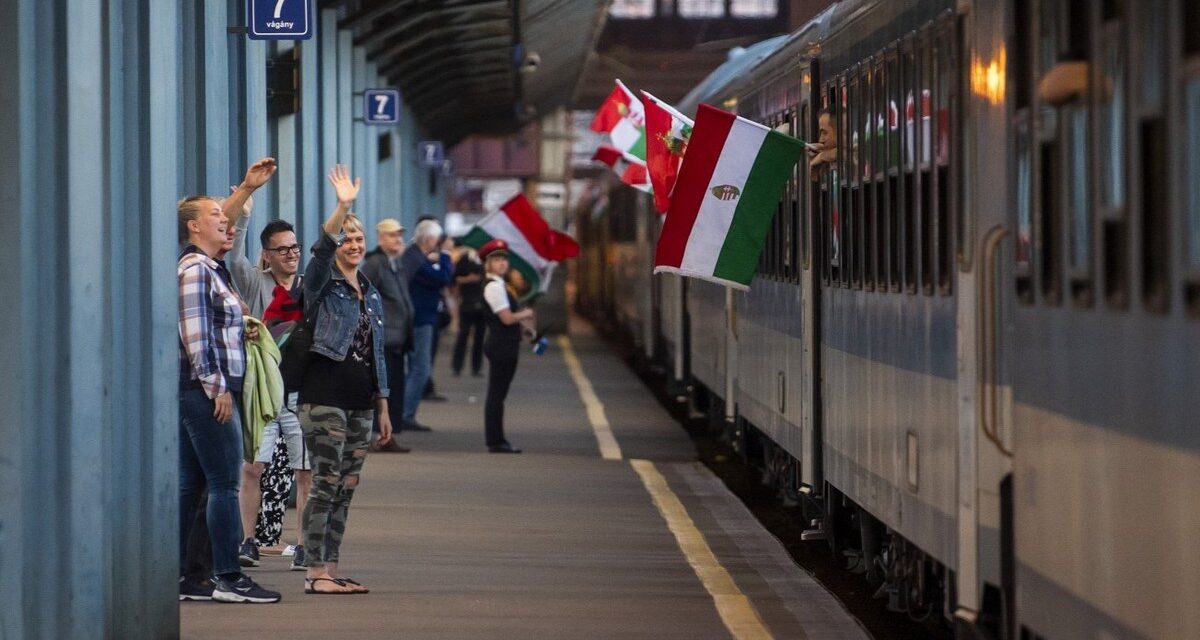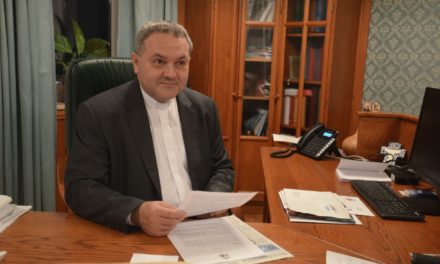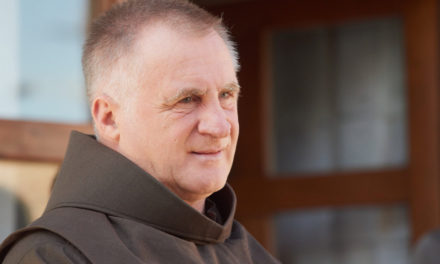The pilgrimage to Csíksomlyo shows both the unity of the Hungarian nation and the necessity of Christian teaching, while the train to the Pauline shrine in Poland is a message of support for Polish society.
The farewell in Csíksomlyó is a response to the attacks that are hitting nations, Christianity and the laws of the created world that have been accepted for thousands of years all over the world - said Miklós Soltész, the State Secretary of the Prime Minister's Office responsible for church and ethnic relations, at the press conference at which the Mission Tours Travel Agency and MÁV-Start has announced that the Boldogasssony and Mission train will depart for Csíksomlyo again this year.
The nation can be together in Csíksomlyo: not only Catholics, but also Protestants and seekers of God, and not only the Hungarians living in the Carpathian Basin, but also the Hungarians of the diaspora from all over the world. And this gives fantastic strength to the Hungarian nation - stressed Miklós Soltész.
Speaking about the Black Madonna pilgrimage train in Poland, also organized by Mission Tours, the State Secretary highlighted: In Poland, a government was formed that openly goes against the values of the society that stood up for Christianity even under communism.
"Therefore, it is now our duty to help them. The pilgrimage to the Pauline shrine in Czestochowa is a message to Polish society and indicates the unity of the two nations," said Miklós Soltész.
Pécs county bishop László Felföldi spoke about how many people have never been on the road as there are today, but rushing in time is quite different than making a pilgrimage.
The pilgrim gives time to himself, to the other person with whom he is making the pilgrimage, to silence and to God.
He expressed his joy that many young people participate in the pilgrimages. These young people want to live their lives beautifully, so they come and ask questions. He pointed out: the constant questioning of young people is "normal", and it is our responsibility to know what answers they get, "what and how we write in their innocent, white hearts".
László Mosóczi, the general manager of MÁV-Start Zrt., said that during the cooperation between the railway company and the travel agency since 2011, 23 thousand pilgrims were transported on 30 trains.
A joint train pilgrimage is organized for the 11th time to the farewell in Csíksomlyó.
He noted: MÁV is constantly improving the services of the trains traveling to Transylvania according to the schedule.
Csongor Csáky, the president of the Rákóczi Association, spoke about the following: thanks to the six-year relationship between the association and the travel agency, young people can travel on the pilgrimage train every year, and now the train pilgrimage has become one of the most popular youth programs of the Rákóczi Association.
On this year's pilgrimage, four train cars will be filled with high school students coming from Hungary and the Carpathian Basin. In addition, thanks to the Hungarian Diaspora Council and the government, young people from the Hungarian diaspora living in different parts of the world (from New Zealand, Buenos Aires, Canada and many Western European countries) can also participate in the pilgrimage.
At the press conference, the letter of László Kövér, the President of the Parliament and the main patron of the Pilgrimage Train of the Blessed Virgin Mary, was read out.
The speaker reminded that the Székely community living in the heart of Székelyföld, at the foot of the Hargita, is in the 21st century. in the second decade of the 20th century, he erected an open-air altar in honor of Saint László, thereby testifying to his "strength and will to live".
This is the response of a community showing vitality in its faith and Hungarianness to the current world political turmoil and the ideological destruction taking place in the Western world, the aim of which is to deprive the peoples of Europe of their Christian roots and culture, said László Kövér.
László Budai, the managing director of the Misszió Tours Travel Agency, explained: in addition to the pilgrimage trains from Csíksomlyo, the Black Madonna pilgrimage train will also depart for Poland this year in June.
Among their pilgrimages, he also highlighted the Rome pilgrimage announced by the Hungarian Catholic Bishops' Conference (MKPK) for the anniversary of Pope Francis' apostolic journey to Budapest, in which pilgrims can participate by bus and plane organized by the travel agency, and by motorbike led by the monk Pálos Bátor Botond.
It was announced at the press conference: László Kövér, the President of the Parliament and Győr County Bishop András Veres, the head patron of the Pilgrimage Train of the Blessed Virgin Mary, the MKPK president, the assistant bishop of Váci Lajos Varga, the Verbite monk Ferenc Juhos, and the Catholic priests Dávid Sziklai and Gergő Cséry will be their spiritual guides. Franciscan monk Csaba Böjte and priests László Papp and Péter Bökő will be the spiritual guides of the Mission pilgrimage train.
The spiritual guide of the Polish pilgrim train will be bishops János Székely of Szombathely and László Felföldi of Pécs, as well as the retired auxiliary bishop of Gyulafehérvár Tamás József.
The complete program of the pilgrimages can be found on this page .
According to legend, the first farewell procession in Csíksomlyo was held in 1567, when the Transylvanian prince János Zsigmond tried to force the Catholic Szeklers to adopt the Unitarian religion at gunpoint.
The people of Csík, Gyergyó and Kászon gathered in Csíksomlyo on Pentecost Saturday, asked for the help of Szůz Mária, and then defeated the prince's army at the Hargita Tolvajos Pass. After the victory, they gave thanks again in Csíksomlyo, and also made a vow to make a pilgrimage there every year on Pentecost Saturday.
MTI
Cover image: The national pilgrimage train leaving for Pentecost in Csíksomlyo at the Keleti railway station in June 2022
Source: MTI/ZOLTÁN BALOGH













